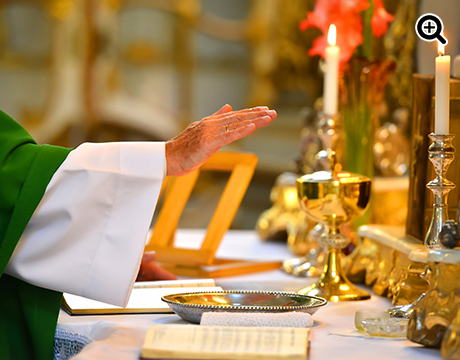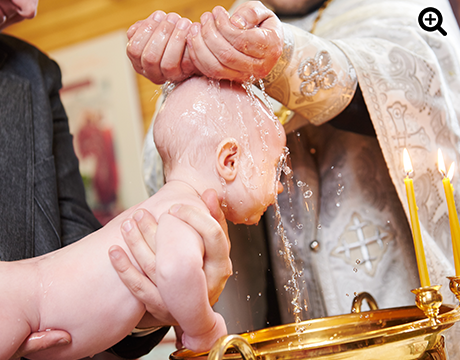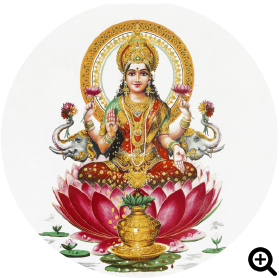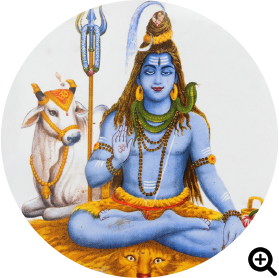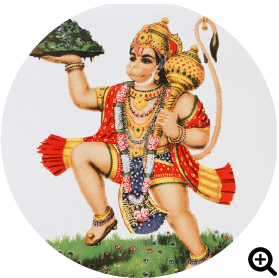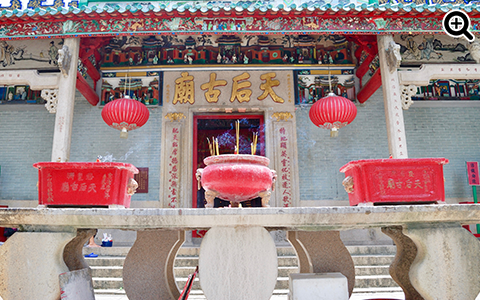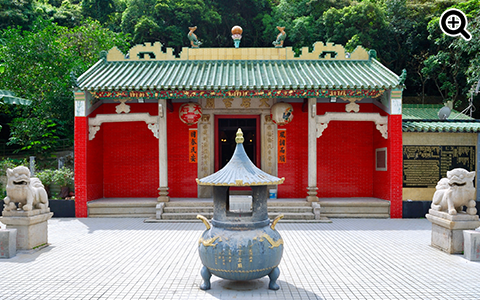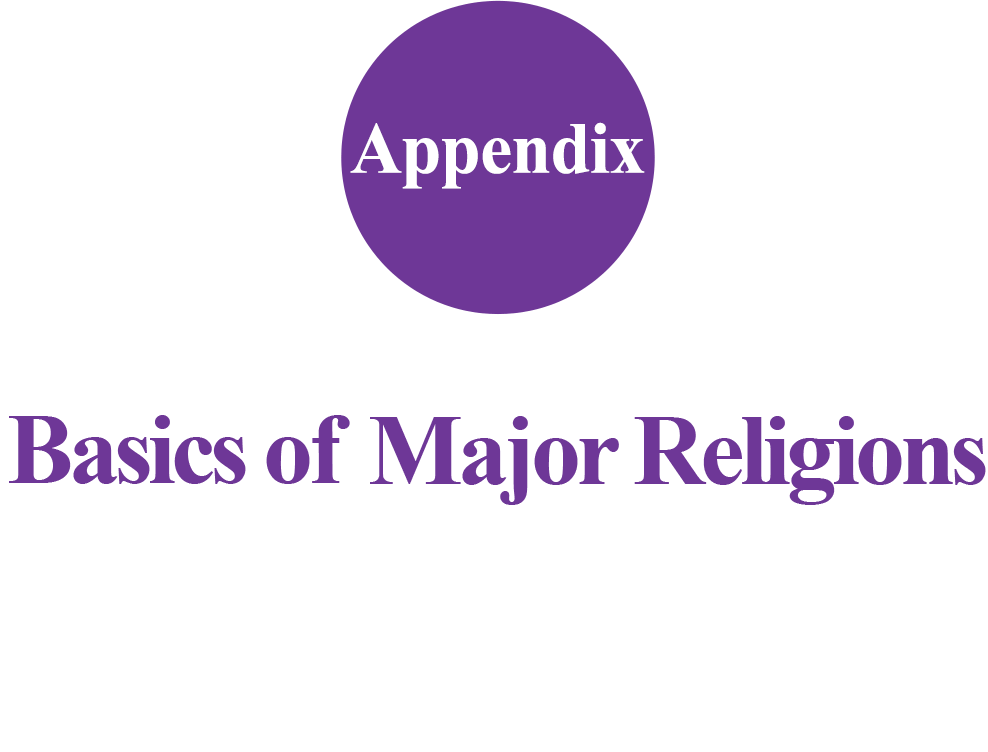
 | Judaism |
 | Christianity |
 | Islam |
 | Hinduism |
 | Buddhism |
 | Taoism |
 | Chinese Folk Religions |
 | Confucianism |
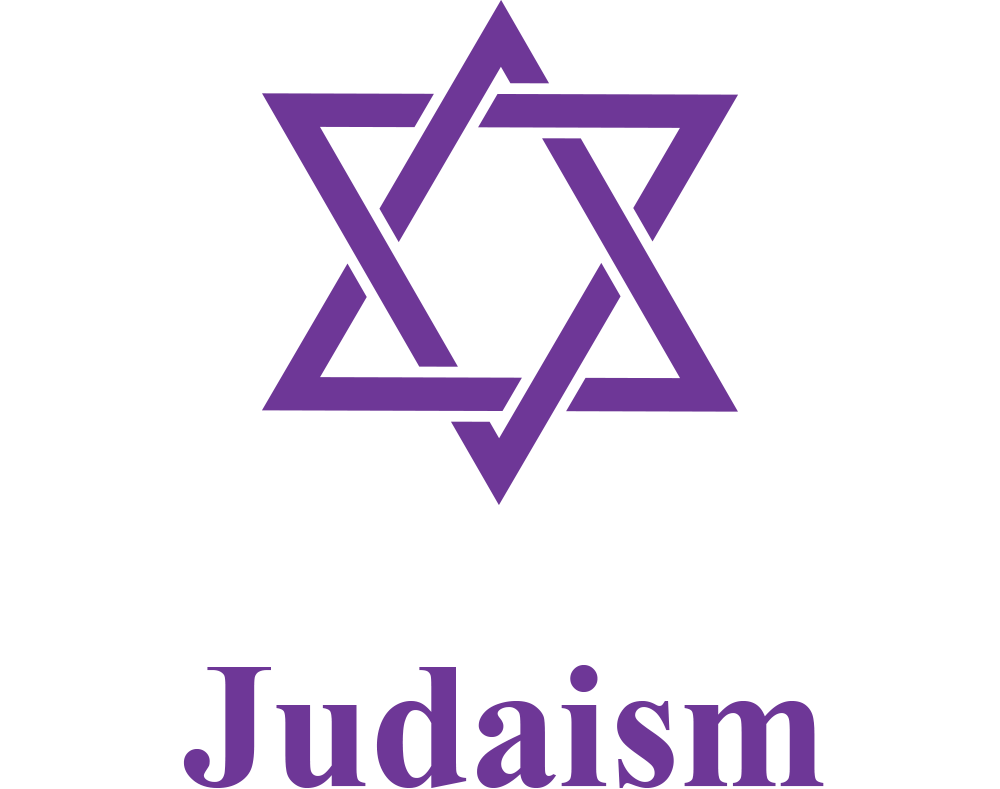
There are about 14 million Jews in the world, belonging to Orthodox, Conservative, Reform and Liberal streams. The majority Jews live in Israel and North America.
The Bible portrays the Jews as a race chosen by God.
However, the Jewish identity does not make them arrogant towards others. They do not consider being chosen by God a superiority, but a particular obligation: an obligation to God's covenant, God's commandments, God's teaching – in Hebrew the Torah.
However, the Jewish identity does not make them arrogant towards others. They do not consider being chosen by God a superiority, but a particular obligation: an obligation to God's covenant, God's commandments, God's teaching – in Hebrew the Torah.
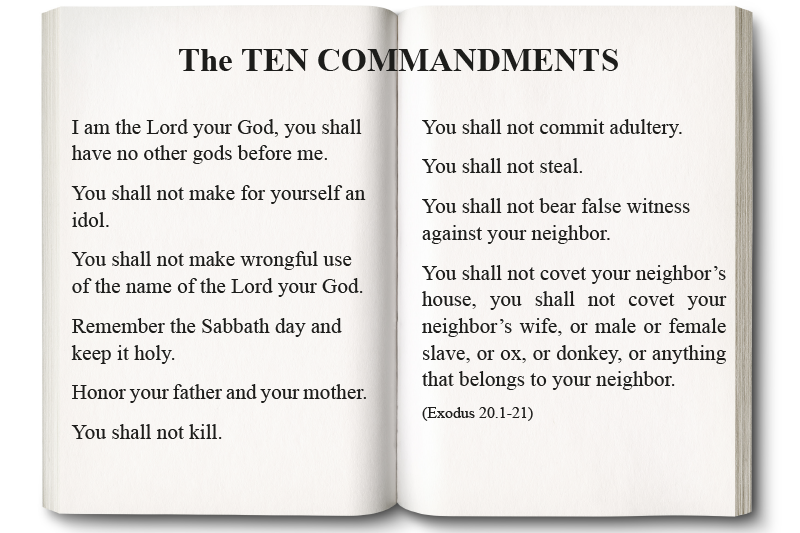

(Talmud, Shabbat 31a)
(Psalm 34.13-15)
(Leviticus 19.18)
(Ezekiel 7.27)
(Talmud, Mishna, Pirkei Avot 1:18)

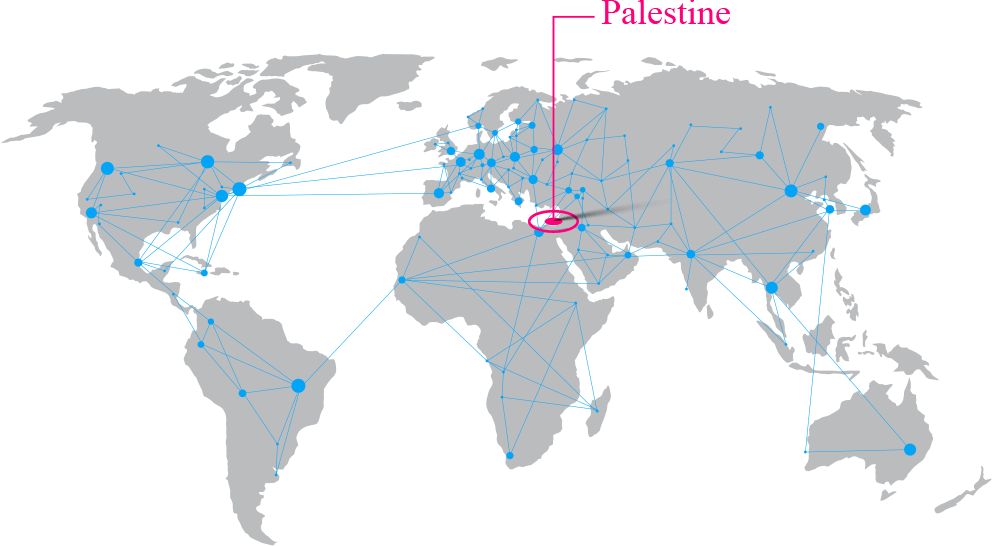 |
Christianity has the largest number of believers among all religions around the world. Since its inception, missions have been an important part of Christianity, which took the religion from Palestine to Europe, then to the world. Christianity set foot in China in as early as the Tang Dynasty (618-907), where it was called Jing Jiao (Nestorianism). According to Pew Research Centre, in 2010, believers in the Christian faith numbered around 2.2 billion, taking up 31% of the world's population. |
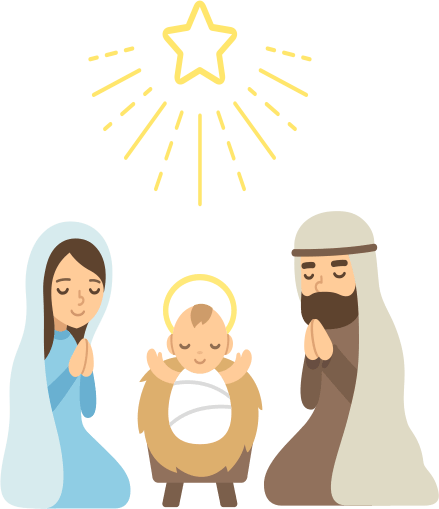 |
Jesus was the founder of Christianity. The first year of Anno Do-mini-the calendar system now widely adopted around the world- commemorates the birth of Jesus. However, scholars commonly believe that Jesus was in fact born of a carpenter family in Galilee, Palestine between 4 and 6 B.C. Jesus began his missionary work about 3 years before his death; little is known before he began his ministry. |
He spoke of the coming of the Kingdom of God upon earth and of God's remaking of the world. He performed miracles of healing and exorcism, signaling the arrival of God's kingdom. He urged men to repent, to change their ways of life, to devote themselves to God, and to love, forgive and make peace with one another. He demonstrated through actions that the poor, the oppressed and the slighted should be cared for and he always accompanied them; he criticized the religious and political leaders for their hypocrisy.
 |
Eventually, on the eve of Passover Jesus and his followers entered Jerusalem, and, likely because of his words and actions, he was arrested by Jewish elders and Roman rulers, and executed by crucifxion. |
 |
According to the Gospels of The Bible, three days after Jesus' death, his disciples discovered his body missing from his tomb. They believed Jesus had been resurrected and triumphed over death. He is the Messiah-the King of Israel that the Jewish people had been promised. They came to realize that Jesus did not come to overturn Roman rulers, but to bring salvation to humanity through sacrifce. This is the Gospel of Jesus, the message from God. |
 Do you know...
Do you know...While he was alive, the disciples of Jesus were mostly Jewish. After his death, his gospels were spread to non-Jewish ethnicities. The Greek word for Christ is 'Khristós', meaning 'Messiah'; thus in early times, foreign converts were named 'Christians'. The disciple, Paul, played an instrumen-tal role in the propagation of Christianity among non-Jews. He preached to foreigners and advocated the exemption of foreign believers from following Jewish traditions. Leaders of disciples, including Peter and James, finally accepted Paul's views, and Christianity gradually departed from Judaism, attracting converts of both sexes and from different ethnicities, classes, and age backgrounds.
In the first 200 to 300 years after the founding of Christianity, believers were ruthlessly persecuted for their reluctance to perform rites of homage to the Roman Emperor. Nevertheless, the commoners were moved by both the courage that the martyrs displayed and their message of mutual love and intimacy. As a result, the persecutions were unsuccessful in curbing the rise in the number of converts.
In the 4th Century, with the Roman Emperor Constantine the First's conversion to Christianity, all prosecution of Christians ceased. Christianity then became an offcially recognized religion. Constantine convened a council and established the Nicene Creed, which became the basis for the Christian doctrines. Since then, Christianity grew steadily to become the dominant religious belief in the Roman Empire and later, the Western world.
Over the past two thousand years, Christianity has undergone two major schisms as a result of discrepancies in doctrine, church polity and politics. In the 11th Century, Christianity was fractured into the Roman Catholic Church with Rome as its centre, and the Eastern Orthodox Church with Constantinople as its centre. The former covered Western Europe, the latter Greece, Russia and parts of Eastern Europe. In the 15 and 16th Centuries, reformers including Martin Luther and John Calvin advocated for a full reformation of the Church, the impact of which was felt across the entire Western Europe. New factions broke away from the Roman Catholic Church, and upon further schism and development, they formed the Protestant denominations of today: the Lutherans, the Congregationalists, the Presbyterians, the Anglicans, the Methodists and the Baptists, etc.
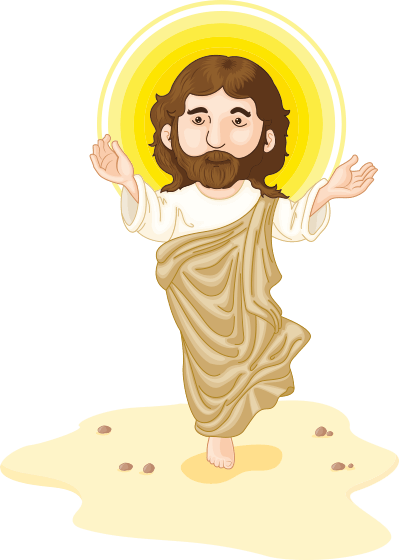 |
Despite their differences, all Christian denominations believe that God exists in three persons: 'Father, Son, and the Holy Spirit'. The implication is that God can be experienced in three different ways. God is the Creator of all things. He created humans in His image, who refect His nature and powers. Humans, however, failed to preserve this goodness and instead embraced evil; their sins have driven them away from God. The Son, Jesus Christ, through being born into this world and sacrifcing Himself, called upon men to repent and rebuild their relationship with God, and to love one another. Jesus' resurrection was an awakening call to men, that though the fames of love and good-ness may waver, truth and justice shall prevail to the end. After the Ascension of Jesus, the Holy Spirit descended upon His followers. He guided the Church to do the work of Jesus and prompted Christians from within to live according to His teachings. Christianity believes humans are incapable of self-deliverance, and that the salvation of Jesus Christ is a grace that God bestowed upon the world. It prophesies the return of Jesus Christ at the End of days, the time all humanity shall receive God's judgment. |
 |
Jesus has not left writings of any kind. His life and teachings have been recorded and compiled by his disciples into the Four Gospels of the New Testament. The New Testament also recorded the work of the early Church and collated the letters sent from the disciple leaders, Peter and Paul, to different churches. Nevertheless, before that early churches only recognized the Jewish Bible-what we today call the Old Testament-as the only valid Holy canon. Christians held the Old and New Testaments as guidance to the principles of spiritual life. |
Among different Christian denominations clerical systems, religious rites and practices also differ. Catholic, Orthodox, and Anglican Churches have retained the clerical positions of bishop, priest, and deacon. In Catholicism, the Roman bishop is named 'the Pope' and revered as the supreme leader of the Church; most of the Protestant churches only retain the clerical position of the priest.
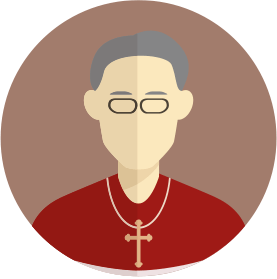
Catholic priest

Protestant priest

Orthodex priest
The Catholic Church holds baptism, confrmation, the Eucharist (Holy Communion), penance (confession), holy orders, matrimony, and anointing of the sick as the Seven Sacraments, around which are formed the core of a spiritual life. Most Protestant Christians retain only baptism and Holy Communion as required sacraments. Converted Christians are baptized, either by the sprinkling of water or by fullimmersion, symbolizing that the converts have joined the Christian Church. The Catholic Church and the Anglican Church accept infant baptisms; baptized infants are required to be reaffirmed and confirmed later in their life - for Catholics, this is by age seven or after. For Anglicans, it is age 10 or after.
Prayer and worship are the two religious practices advocated by all Christian denominations. The object of prayer is God, or any one of the Holy Trinity: Father, Son or the Holy Spirit. Some Catholic, Anglican and Orthodox Christians pray to the Holy Mother or to the Saints, asking them to convey their prayers to God. Christians can recite prayers, or pray in their own words. Worship mainly comprises praying, Bible reading, sermons, and singing of hymns; some worship may include the Holy Communion (for example Catholic Mass Congregations) and baptism or confrmation on special occasions.

Islam is one of the pillars of world civilization. The Prophet Mu-hammad (570-632) is the most important fgure in Islam. Islam is grounded in the belief in one God and provides a set of ethical and moral principles, emphasizing universal justice. Islam has laws similar to the Ten Commandments in the Judeo-Christian tradition. It is also a religion that places importance on personal faith and righteous actions.
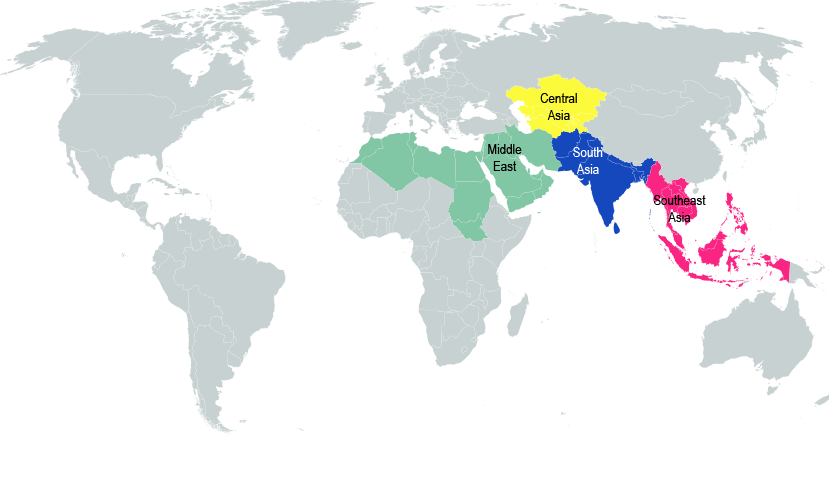 A world map showing the distribution of Muslims |
Population of Muslim
There are around 1.5 billion Muslims in the world today; the two largest denominations are the Sunni comprising the majority and the Shiites. Most Muslims today live in Asia, especially South, Southeast and Central Asia, and the Middle East. Islam is also the predominant religion in much of North, West and East Africa, and there are growing Muslim populations in Europe and the Americas. |
According to Islamic teachings, God sent prophets to all nations on earth at various stages of their histories. Muslims, followers of Islam, believe in prophets mentioned by name in Islamic sources, including some shared in common with the biblical tradition such as Adam, Noah, Abraham, Isaac, Ishmael, Jacob, Moses, David, Solomon, John the Baptist, and Jesus. However, they consider Muhammad the Seal of the Prophets, the Messenger of God who brought God's fnal revelation to mankind. Muslims maintain that the Prophet Muhammad was a mortal human being and do not deify or worship him as Christians do to Jesus Christ.
(I)Allah
The Arabic name for God, the Creator. Monotheistic belief in Allah is the chief duty and fundamental basis of Muslims' belief and practice.
(II)Muhammad
The last messenger from Allah, who is seen as a normal human being: "I am only a human like you to whom it has been revealed that your God is One God."
(Qur'an, 41:6)
(III)Islam
The Arabic word meaning submission to the will of God. Islam is the term for the way of life that the Prophet Muhammad embodied. People who practice Islam are known as Muslims. Its teachings combine the divinely revealed words of the Qur'an and the traditions of the Prophet Muhammad.
(IV)The Five Pillars of Islam
The basic practices incumbent on Muslims:
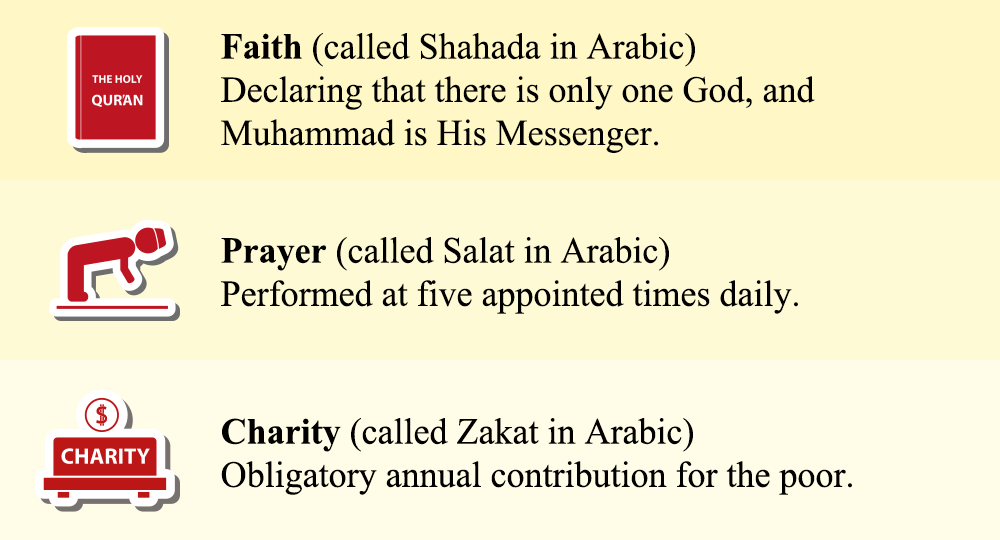
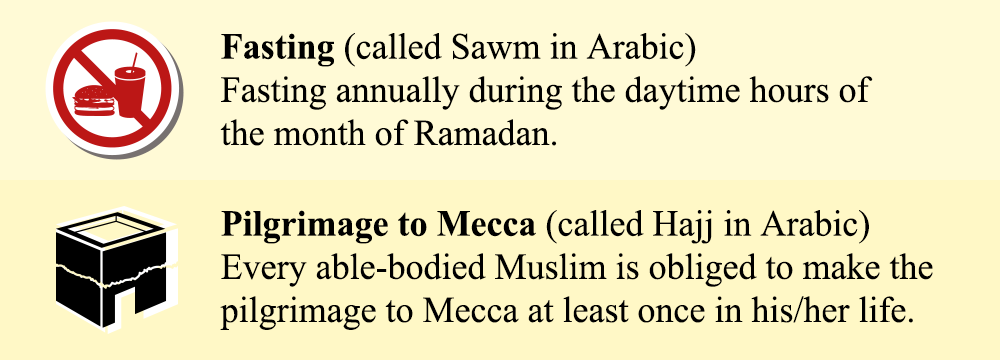
Halal is Arabic for permissible. Halal food is that which adheres to Islamic law, as defned in the Ko'ran.
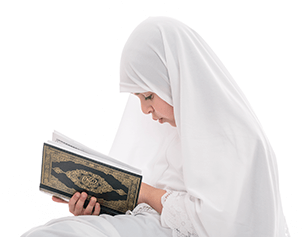
- " O belivers, this wine and gambling, these idols, and these arrows you use for divination, are all acts of Satan; so keep away from them."
(Surah Al-Maida, 5:90) - "O My Lord! Increase my knowledge."
(Surah Tah-ha, 20:114)
- "You shall not follow anyone blindly in those matters of which you have no knowledge, surely the use of your ears and the eyes and the heart - all of these, shall be questioned on the Day of Judgement." (Al Isra 17:36)
(Al Isra 17:36) - "Verily, the vilest of all creatures in the sight of God are those deaf, those dumb ones who do not use their reason."
(Surah Al-Anfal 8:22) - "If you follow the majority of people on the earth, they will lead you astray from the path of God, for they follow only conjecture and sur-mise."
(Surah Al-Anam, 6:116)
- "Those who believe and do righteous good deeds, there is for-giveness of sins and a great reward [paradise]."
(Surah Fatir, 35:7)
- "He (God) is the One Who has spread out the earth for you and traced the roads therein and has sent down water from the sky: With it We (God, the royal "we") have brought forth diverse kinds of vegetation. Eat from it and pasture your livestock. Indeed in this are signs for those of intelligence."
(Surah Ta-ha, 20:53-54) - "'It is God who has made for you the earth a resting place and the sky a ceiling and formed you (the human beings) and perfected your forms and provided you with good things."
(Surah Al-Mumin, 40:64)
- "It is He (God) who has made you viceroys (God's representatives) upon the earth."
(Surah Al-Anam, 6:165) - "Corruption and disorder have appeared in the land and in the sea because of what people keep doing. He (God) will let them taste some of their evil doings, so that they might return to the right path."
(Surah Ar-Rum, 30:41)
- "But indeed if any show patience and forgive, that would truly be an exercise of courageous will and resolution in the conduct of affairs."
(Surah Ash-Shura, 42:43)
- "If your Lord willed, all who are on earth, would have
believed (by not providing free will). Would you then, compel people to become believers?"
(Surah Yunus, 10:99) - "There is no compulsion in matters of faith."
(Surah Al-Baqarah, 2:256) - "You (O Muhammad) cannot guide those you would like to but God guides those He wills. He has best knowledge of the guided."
(Surah Al-Qasas, 28:56)
- "And fight in the way of God those that fight you, but do not transgress, for indeed God does not like aggressors."
(Surah Al-Baqarah, 2:190) - "God does not forbid you from being kind and acting justly towards those who did not fight over faith with you, nor expelled you from your homes. God indeed loves those who are just."
(Surah Al-Mumtahana, 60:8) - "If the enemy is inclined towards peace, do make peace with them, and put your trust in Allah."
(Surah Al-Anfal, 8:61)
- "God does not love corruption."
(Surat Al-Baqarah, 2:205) - "Whosoever kills a human being, except (as punishment) for murder or for spreading corruption in the land, it shall be like killing all humanity; and whosoever saves a life, saves the entire human race."
(Surah Al-Maidah, 5:32)

The name Hinduism was invented by Europeans for the Indian religion. In fact, it does not denote a single Indian religion but a whole cluster of religious traditions, a confederation of religions. There are more than 1 billion Hindus worldwide; most of them live in India.
Indians usually call their religion eternal order. In Sanskrit, the old classical language of India, this is Sanatana dharma. This central concept of dharma determines everything; it means order, law and obligation.
Order here is not a legal order but an all-embracing cosmic order which governs all lives. All men and women, regardless of the caste or class to which they belong, have to observe it.
It is also clear that Hinduism is not primarily a matter of statements of faith, dogmas or orthodoxy. Hinduism has no official doctrinal authority but is about right actions, rites, and morality – everything that makes up the practice of a religion.
Hinduism is not primarily about specific rights either. It is about our great human destiny, the responsibilities we have: responsibilities towards family, society, God and the gods. Throughout their lives, Hindus pursue the "Moksha" as their ultimate goal; they perform many kinds of practice, striving for detachment from the cycle of life and death.
Most Hindus believe in one Supreme and Absolute – Brahma. By choosing their own path, Hindus associate themselves with a quite particular divine revealer figure, like Shiva, Vishnu, Krishna or Rama.
Hindus are convinced that the human soul is eternal, as everlasting as the primal ground of the world. According to the law of karma, it undergoes several earthly existences. The law of karma stated that the behavior in the past life determines the present situation, which in turn determines future lives in the Samsara.
The four Vedas are regarded as classical sacred of the Hindus, but the Bhagavad-Gita, a book from the Mahabharata epic, is also extremely popular.
Yoga is a group of physical, mental, and spiritual practices or disciplines which originated in ancient India. It is seen as a means to enlightenment. Karma Yoga, Bhakti Yoga, Jnana Yoga, and Raja Yoga are considered the four main yogas.
 Kama-
Striving for what is pleasant and the delight of the sense.  Artha-
Striving for what is useful and attaining prosperity.  Dharma-
Working for justice and virtue.  Moksha-
Striving for liberation and salvation (moksha) from the cycle of birth, death and reincarnation. |

|
(1)Politics Without Principles
(2)Commerce Without Morality
(3)Wealth Without Work
(4)Knowledge Without Character
|
(5)Science Without Humanity
(6)Pleasure Without Conscience
(7)Worship Without Sacrifice
(This is a list that Mahatma Gandhi published in his weekly newspaper Young India on October 22, 1925) |
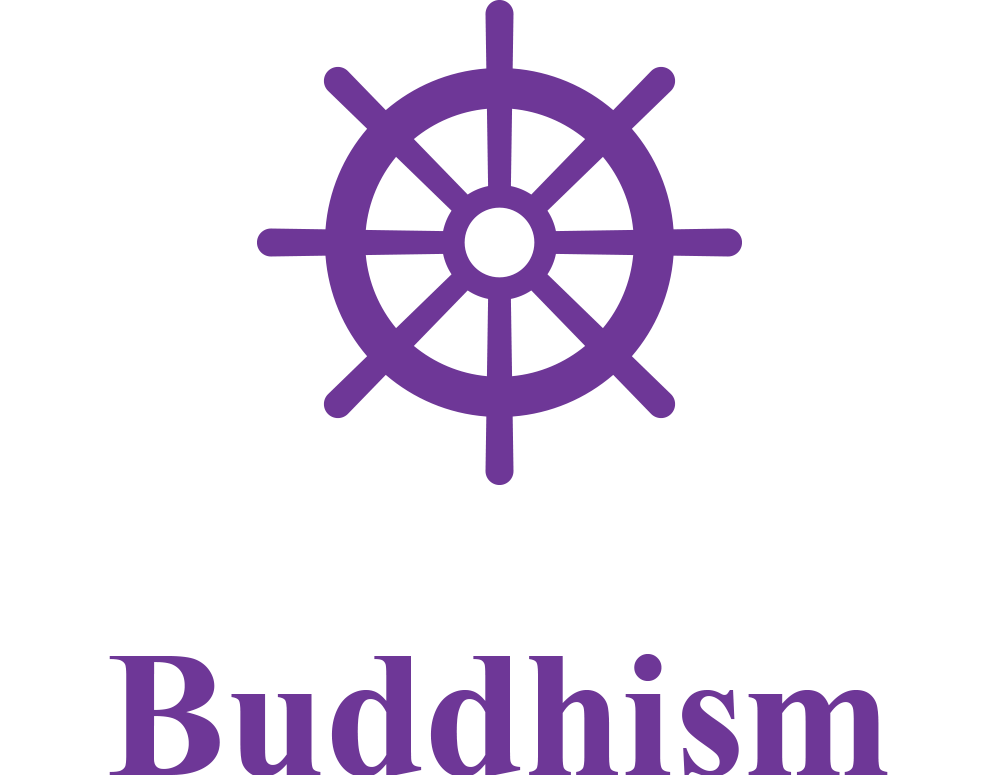
Buddhism is a religion founded by Siddhārtha (revered as 'Siddhārtha Gautama Buddha' upon his awakening), a prince of the ancient Indian kingdom Kapilavastu in 6 B.C. Indian Buddhism came into China around the Han Dynasty, and Chinese Buddhism came into being when Indian Buddhism converged with Chinese cultures.
Origins of Buddhism
'Buddha' means 'enlightened one'. When Prince Siddhārtha traveled the country, he encountered an old man, a diseased man, a corpse, and an ascetic. He was deeply shocked by severe forms of human suffering: old age, illness, and death (a corpse). He meditated under a tree but failed to find a way to overcome the pain. On a moonlit night when he was 29, he left his palace on a white horse to take up a spiritual quest. He visited renowned teachers and spent 6 years in self-mortification with fasting. At the age of 35, realizing ascetics was not the way to emancipation, he travelled to Buddha-gayā where he was fed by a shepherd girl with milk and rice pudding. After a 49-day meditation under a Bodhi tree, he realised that the world was founded upon causes (main derivative) and conditions (supplement) and that immateriality was the dharma – the law and nature – of all things. He finally repelled the threats and temptations from the demon deva-māra to reach enlightenment and achieve Buddhahood. He is revered as the 'Shakyamuni Buddha'.
Upon enlightenment, the Buddha spread the truth he obtained. The gist of this truth is that all beings should learn the Buddhist doctrine, through which they should realize that within the endless cycles of life and death, all beings suffer within the bounds of affliction and karma. To extricate oneself from this predicament, one should begin with the law of 'dependent origination' – an understanding that all things in the world are predicated upon main causes and supplementing conditions. Realizing all things have no permanent or independent presence, human beings should abandon their insistence on their egoism and all externalities, eventually transcending the cycle of life and death and of transmigration.









|
Letterpress, for the use of making Buddhist scriptures. Photo was taken in Manpuku-ji, Kyoto Japan, 2014. |
The Tripitaka is a copious collation of Buddhist canons and comprises sūtras (Buddha's teachings), the vinaya (monastic rules), and śāstras (explanatory treatises). The word 'Tripitaka' cannot be found in the earliest records in India or China. During the Southern and Northern Dynasties (AD 420-581) the Buddhist canon was named 'collated classics of all sūtras' or 'the full Buddhist canon'. It was not until after the Sui (AD 581-618) and Tang (AD 618-907) Dynasties that the title 'The Tripitaka' gained currency, and is used to refer to the entire Buddhist canon collated and edited by monks under the imperial edict. The Chinese Tripitaka has different versions including the Qian Long Tripitaka and Jiaxing Tripitaka, compiled respectively under Emperor Qian Long (1711-1799) and Emperor Jiaxing (1760-1820) of the Qing Dynasty (1644-1911). Extant versions of The Tripitaka can be classified into three major categories according to the language they use: Chinese, Tibetan and Pāḷi. |
Modern Buddhism has two major schools: the Southern School and the Northern School. The Northern School is further divided into Chinese Buddhism (including Buddhism prevalent in China, Japan, and Korea) and Tibetan Buddhism. The Southern School comprises mostly the Sthaviravāda School of Buddhism (prevalent in Thailand, Myanmar, Sri Lanka and their neighbouring regions). All schools share similar basic tenets but differ in practice and certain theoretical teachings.
|
Chinese Buddhism
In Chinese Buddhism, whether one is a monk or nun practitioner or a regular practitioner, most would be a believer of the Zen Sect (Chan Zong) or the Pure Land Sect (Jingtu Zong). The Zen School believes that other than his words and canons, the Buddha also passed along his teachings by heart. This method is based on The Platform Sutra of the Sixth Patriarch, in which was recorded: "As lectured by masters of superior character, teaching through the spark of enlightenment is of the highest order." This is based on the belief that the Buddha-nature is inherent in all beings, differing only in their degrees of delusion and enlightenment. With the guidance of great sages all humans can realize the Buddha-nature in themselves, i.e. "see one's own nature and accomplish Buddhahood". The Zen Sect emphasizes on "Simply use the mind, and you will straightaway accomplish Buddhahood" and "in every thought, purify your own mind, cultivate your own conduct, see your own Dharma-body and the Buddha of your own mind." The Pure Land Sect emphasizes on the practice of invoking the great compassion of the Buddha and the Bodhisattva to arrive at the Pure Land (an example being Sukhāvatī, the place of great bliss, where the Buddha Amitābha reigns). Practices of the Pure Land Sect mainly include chanting and acts of benevolence. |
 |
The most widely known Buddhist festival is the Birthday of Lord Buddha (also known as 'Bathing the Buddha'), which commemorates the birth of the Shakyamuni Buddha. On that day, believers garnish a pavilion with flowers and fragrant herbs, place a statue of the new-born prince in the pavilion, and prepare an aromatic liquid for believers to bathe the statue. This festival carries several of meanings:
1. It celebrates the benevolent spirit of the Buddha, who had left his home, achieved enlightenment, attained nirvāna, and tirelessly spread Buddhist teachings. Bathing the Buddha is an act of reciprocation.
2. Through bathing the Buddha one dispels afflictions, cleanses humanity of its filth, attachments, afflictions, undesirables, and brings about a soothing liberty in body and mind. It applies benevolence in action and imbues a benevolent spirit in humanity.
3. The true purpose of bathing the Buddha is to clean society and to awake and guide the public. All Buddhists, through bathing the Buddha, will realize their Bodhi mind (Bodhicitta), and share the glory and spiritual enlightenment of Buddha.
There are a number of active Buddhist organizations in Hong Kong, including The Hong Kong Buddhist Association (HKBA), which is the most well-established and representative. Also, there are the Heung Hoi Ching Kok Lin Association (HHCKLA), and the Buddhist Youth Association (BYA).
The Hong Kong Buddhist Association was founded by monks and Buddhists in 1945 being and became a leading Buddhist association in Hong Kong. By 2014, the HKBA had established more than 30 school campuses that include kindergarten, primary and secondary schools, a number of hospitals and homes for the elderly, and has actively involved in social welfare endeavours. In 1998, the HKBA successfully lobbied the government to make the Birthday of Lord Buddha a public holiday. Each year, Buddhist groups also organize a Ching Ming Memorial Service for Buddhists to pay homage to their ancestors, and other large-scale religious and celebratory activities on Buddha's Birthday, to promote the teachings of Buddha.
Some Buddhist monasteries, such as Chi Lin Nunnery and Po Lin Monastery, greatly contribute to cultural and social services. Chi Lin Nunnery was founded in 1934 by Ven. Wai Um. The Nunnery underwent redevelopments in 1989 and was reinaugurated on 6th January 1998 with a total area of 30,000 square feet. Besides religious activities, the Nunnery also offers elderly care and education services. The Nan Lian Garden, managed by Chi Lin Nunnery, is an outdoor Buddhist Garden that plays an important role in promoting Chinese and Buddhist culture.
The Po Lin Monastery, was initially known as 'The Big Thatched Hut', and was founded in 1906 by three monks from Jiangsu Province: Da Yue, Dun Xiu, and Yue Ming. A fund-raising campaign commenced in 1981 to build the Giant Buddha Statue, which was completed in 1993 and has since been a landmark of Hong Kong. Hundreds of thousands of tourists and believers visit this landmark each year. Besides servicing the local community, Po Lin Monastery has also contributed to the establishment of over 300 Hope Schools located in impoverished mountainous regions of the Mainland. Buddhism in Hong Kong has undergone various kinds of development and has become closely related to society.
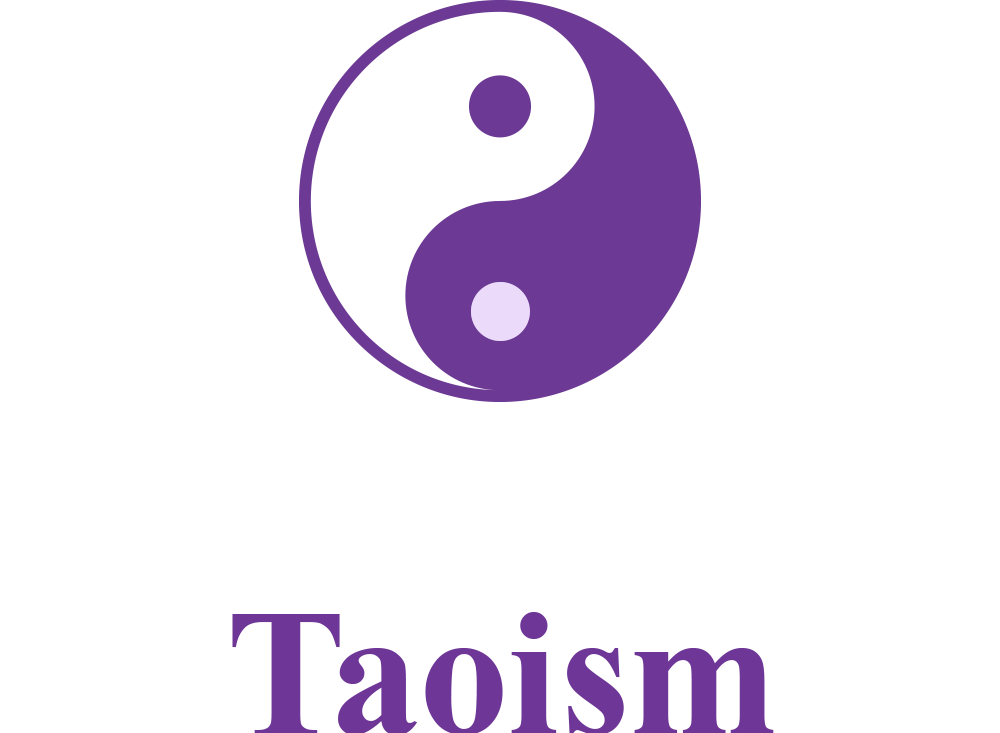
Taoism is an indigenous religion in China with a long history; its first organized sect appeared during the Eastern Han Dynasty (25–220 AD). Tao is the core part of Taoist belief and the origin of all Taoist doctrines. Unlike other religions, Taoism was not founded by one single person. It took centuries for Taoism to be established through the teachings of deities and eminent priests under the apocalypse. Taoism identifies itself as a complex history and as one of many strands of thought. The religious Taoism is generally thought to be derived from the faith of immortality, Taoist philosophy, body cultivation, ritual traditions, etc.
Scriptures
The Taoist Canon (Daozang) includes a vast collection of scriptures and ritual texts. It was edited by Taoist priests under the support of ancient Chinese Emperors. Tao and Te are the principal foci of Taoism. Taoism regards Tao as the supreme origin of the universe and the source of everything. Te is the expansion of the principles of Tao and it consists of the norms of moral behaviors in social life.
Taoism has thrived outside China. Some Westerners pay close attention to Taoist thoughts of health preservation and natural ethics. Western scholars are also deeply interested in the study of Taoism. Joseph Needham (1900-1995) is one of the famous sinologists who made eminent achievement in Taoist studies. Tao Te Ching, a fundamental text of Taoism, has also been translated into various foreign languages. People from different countries could understand Taoism easily.
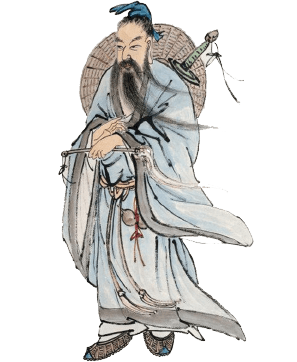
Lü Dongbin
Taoism is a polytheistic religion and teaches that the innate deities are derived from the Qi (energy) of Tao. As the Taoism says "One Qi transforms Three Pure Ones". The Three Pure Ones are the highest gods in Taoism, namely, the Jade Purity, the Supreme Purity and the Grand Purity. In addition, Taoists also have to devote themselves to self- cultivation and transformation.
Taoism believes ordinary people can become immortals after rigorous practices. This belief leads to the development of the techniques of health preservation and alchemy and also stimulated the development of Chinese medicine and Qigong. Immortals such as Lü Dongbin, Wong Tai Sin, and the Eight Immortals are well-known among people.
Taoism emphasizes the worship of and the connection with the deities. Most Taoist religious festivals celebrate the birth of Taoist deities and the day they become immortals. For instance, Taoist followers regard the 15th day of the second lunar month as Laozi’s birthday. Since 2013, The Hong Kong government has recognized the second Sunday of March to be "The Day of Taoism". There are other festivals which commemorate the birth of the immortals. For example, the 14th day of the fourth lunar month is Lü Dongbin's birthday and the 19th day of the first lunar month is Qiu Chuji’s birthday.
|
Fung Ying Seen Koon, one of the greatest Taoist temples in Hong Kong. |
Taoism is concerned with life and death. It is also believed that Taoism deities supervise people's lives and fortunes. The faith of Taisui is popular in the contemporary society. Taisui refers to the sixty deities who correspond with the sexagenary cycle of the lunar calendar in China. Each of them take turns to be in charge of fortune in a particular year. In the Lunar New Year, Chinese visit the temple to worship the deities and ask for blessings in obtaining peace and good fortune throughout the year. Moreover, Taoism believes in the existence of life after death; people still have another journey of life in the afterworld. Reverence for ancestor spirits and the pacification of hungry ghosts is common in Taoism. The 15th day of the seventh lunar month is Taoist Zhong Yuan Festival. On this day, many Taoist temples hold the Zhong Yuan Ceremony and perform rituals to save the ghosts in the netherworld. |
Through the understanding of Tao, Taoism developed a unique philosophy and ethic. Tao Te Ching and Zhuangzi are the most important scriptures about Taoist Ethics and the main themes are to promote harmony with nature and peace. The main concepts of Taoist thoughts include the following ideas:
1. Tao follows its own ways
This idea is derived from the 25th chapter of Tao Te Ching: Man models himself on earth, earth on heaven, heaven on the way, and the Tao on that which is naturally so. That means Tao co-exists with all things in the universe and is the model of for them. One of the characteristics of Tao is "nature". In Tao Te Ching, "nature" means following its own way without human intervention. When we apply this to the relationship with the natural world, we should realize that humans are a part of it and we are responsible to protect our environment to maintain species diversity. Furthermore, Taoism advocates harmony between human beings and the universe, which includes the harmony among people, harmony between humans and nature, and harmony between humans and society.
2. Respect the Tao and cherish life
Taoism is to show respect to others' lives and the right to life for everything on Earth. Tao Te Ching is strongly against war, considering that war not only causes casualties and damage, but also contravenes the spirit of Tao.
On the practical level, doing good deeds and restraining evil are crucial in Taoism. These ethical principles include selflessness, self control, benevolence and filial piety. Ethical behavior is considered important for health and immortality, and for ensuring successful self-cultivation.
3. Non-action and no contention
"Non-action" does not mean we should not do anything in any circumstances, but we should not do anything which is unnecessary. Water is a common metaphor in Tao Te Ching and it is always used it to illustrate the virtue of Tao, as water excels in benefiting the myriad creatures without contending with them. Therefore, Tao Te Ching also teaches us "The way of heaven is to benefit others and not to injure. The way of the sage is to act but not compete."
Because water excels in benefiting the myriad creatures without contending with them and settles where none would like to be, it comes close to The Way.
In a home it is the site that matters;
In quality of mind it is depth that matters;
In an ally it is benevolence that matters;
In speech it is good faith that matters;
In government it is order that matters;
In affairs it is ability that matters;
In action it is timelines that matters.
It is because it does not contend that it is never at fault.
(Tao Te Ching, Chapter 8) Most benevolent actions resemble water in character. Water benefits all things but does not compete with them. It puts itself in (low) places where most people don't like. As such, it comes close to the nature of Tao. The sages model water in that they will: find the most suitable place to live; empty and deepen their minds; offer beneficial help; let their words be trustworthy; manage social affairs efficiently; handle matters competently; do the right thing at the right time. Because the sages do not fight for recognition, so there will be little animosity.
But there is none who can keep them. To be overbearing when one has wealth and position Is to bring calamity upon oneself. To retire when the task is accomplished Is the way of heaven.
(Tao Te Ching, Chapter 9)
When gold and jade fill the hall, they cannot be guarded. Riches and pride bequeath error. Withdrawing when work is done. Heaven's Tao.
The five notes make his ears deaf;
The five tastes injure his palate;
Riding and hunting make his mind go wild with excitement;
Goods hard to come by serve to hinder his progress.
(Tao Te Ching, Chapter 12)
Five colors darken the eyes. Five tones deaden the ears. Five tastes jade the palate. Hunting and racing madden the heart. Exotic goods ensnarl human lives. Therefore the Sage takes care of the belly, not the eye, chooses one, rejects the other.
Two begets three;
Three begets the myriad creatures.
The myriad creatures carry on their backs the yin and embrace in their arms the yang and are the blending of the generative forces of the two.(Tao Te Ching, Chapter 42) TAO engenders One, One engenders Two, Two engenders the ten thousand things. The ten thousand things carry shade and embrace sunlight. Shade and sunlight, yin and yang, breath blending into harmony.
He takes as his own the mind of the people.
Those who are good I treat as good.
Those who are not good I also treat as good.
In so doing I gain in goodness.
Those who are of good faith I have faith in.
Those who are lacking in good faith I also have faith in.
In so doing I gain in good faith.
(Tao Te Ching, Chapter 49)
The Sage has no set heart. Ordinary people's hearts become the Sgae's heart. People who are good I treat well. People who are not good I alsotreat well: TE as goodness (de shan). Trustworthy people I trust. Untrustworthy people I also trust: TE as trust (de xin).
And its virtue will be genuine;
Cultivate it in the family
And its virtue will be more than sufficient;
Cultivate it in the hamlet
And its virtue will endure;
Cultivate it in the state
And its virtue will abound;
Cultivate it in the empire
And its virtue will be pervasive.
(Tao Te Ching, Chapter 54) Maintain oneself: TE becomes real. Maintain the family: TE becomes abundant. Maintain the community: TE becomes extensive. Maintain the country: TE becomes prolific. Maintain the world: TE becomes omnipresent.
The Great Argument does not require words.
Great Benevolence is not (officiously) benevolent.
Great Disinterestedness does not vaunt its humility.
Great Courage is not seen in stubborn bravery.
(Zhuangzi on the Equality of Things)
Maintain your life,
Nourish your parents,
And complete your allotted years.
(Zhuangzi Essentials for Nurturing Life)
(Zhuangzi Responses for Emperors and Kings)
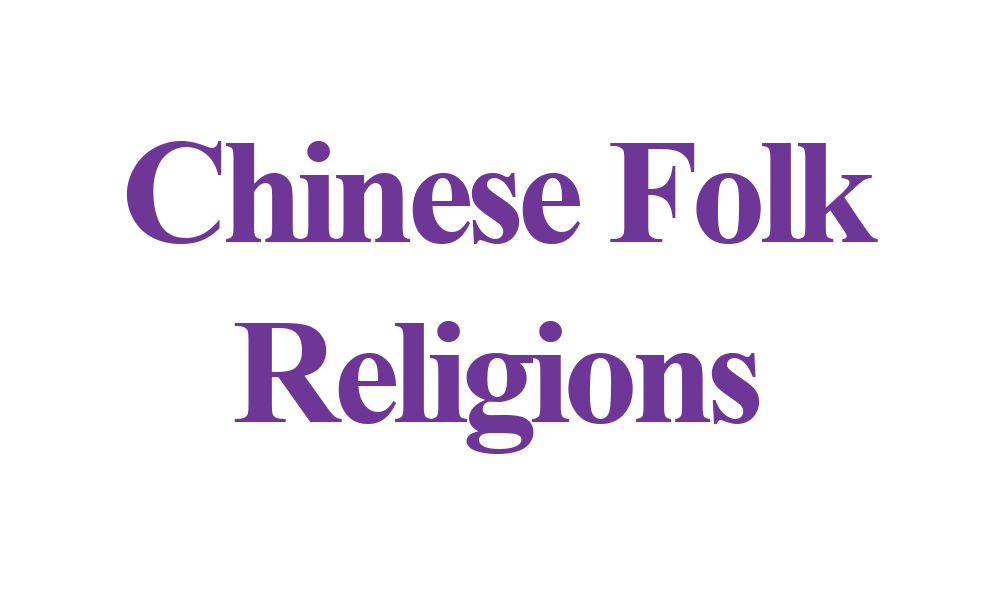
|
Tai Wong Ye Temple, located in Southern District. |
Popular religion in Hong Kong is a polytheistic system, as in the Mainland. There are different deities in this system and people usually believe that these deities are related to different aspects of their secular life. People even think that the deities are under a kind of bureaucratic system. The formation of Hong Kong popular religion is strongly related to the history, location, and immigration of population in Hong Kong. Each community has developed their own worship system by constantly accepting or abandoning deities under the ever-changing historical and social background. At the same time, believers also worship different deities according to their own needs and diversified understanding of the deities. People establish various local organizations based on these popular religious systems. |
Wong Tai Sin may be the most well-known popular religion and the most prevalent deity in Hong Kong. The Wong Tai Sin Temple is located in Kowloon, near the southern part of Lion Rock. It attracts thousands of local and overseas followers every year,making the temple a famous scenic spot in Hong Kong.
According to an official account of Wong Tai Sin's life on earth, he was originally a shepherd named Wong Cho-ping from Mount Jinhua in Zhejiang Province. He was instructed by a Taoist priest and later spent forty years in a stone cave for the cultivation of Taoism. His elder brother Wong Cho-hei found him at last and was enlightened after seeing his younger brother turning stones into sheep. After that, Wong Cho-hei began to take up Taoist practices as well. The cult of Wong Tai Sin spread to Guangdong in the late nineteenth century and began to flourish in Hong Kong in the early twentieth century.
Characteristics of Wong Tai Sin Cult
(1) A cult with teachings from three religions
Although Wong Tai Sin is a deity of Taoism, the Confucian Hall for the worship of Confucius and the Yue Heung Shrine for the Buddha of Lighting Lamp can also be found in Wong Tai Sin Temple. Moreover, the wall inside the Main Altar is decorated with paintings of Buddhism, and Confucianism. All these reflect the collaboration of Taoism, Buddhism and Confucianism in the Wong Tai Sin cult.
|
Sik Sik Yuen (also calls Wong Tai Sin Temple), located in Wong Tai Sin District. |
(2) "To Act benevolently and to teach benevolence" The popularity of Wong Tai Sin in Hong Kong is not only because of its efficacy. The guiding principle of Wong Tai Sin is "benevolence" and following this principle, Sik Sik Yuen has made great achievements in charity work since the last century. The charity work of Sik Sik Yuen covers medicine, education, and social service. The medical work has suffered a decline during recent years. The medical clinic remains a traditional service of Sik Sik Yuen. Some Taoist temples other than Sik Sik Yuen also offer medical services. Besides, Sik Sik Yuen is also devoted to many kinds of social services, such as offering volunteer services and homes for the elderly. The principle of benevolence also extends to the educational services offered by Sik Sik Yuen. The core principle of the Wong Tai Sin cult permeates deeply into the society through education and promotes moral teaching for the welfare of society. |
Tin Hau, the Heavenly Mother, is a Goddess of the sea in southern China and South-East Asia. There are over three thousand Tin Hau Temples in Hong Kong, the coastal area of South China and overseas Chinese communities.
It is said that Tin Hau was born in Putian, Fujian Province. Tin Hau was known as Lin Moniang, a woman with magical powers. In Taiwan and Fujian, Tin Hau is called "Mazu". Ceremonies are held by Tin Hau Temples to celebrate her birthday on 23 March of the Chinese lunar calendar. Most Tin Hau Temples hold their processions and opera performances on that day. Tin Hau was recognized and shaped by several generations of Chinese governments and finally she became "the goddess of the sea". Because of the cohesive force of the Tin Hau cult and its contribution to the communication of Chinese in different areas, in the 1990's the Chinese government bestowed on Tin Hau the name of "the goddess of peace in the strait".
Characteristics of the Tin Hau Cult
(1) Pluralism of the Tin Hau Cult
People believe that it may have originated from Buddhism, Taoism or Confucianism. However, no matter what its origins were, it shows that the Tin Hau cult is a pluralistic religious system. It is a mixture of traditional religions in the Pan-Pearl River Delta Region. Even in today's Hong Kong, Tin Hau is often placed in the temples together with Guanyin, the Buddhist goddess of mercy. For instance, the Tin Hau statue in Repulse Bay in Hong Kong is placed side by side with a Guanyin statue. Also, the Tin Hau statue in the Causeway Bay Tin Hau Temple is placed beside and worshipped together with Caisheng (God of Wealth) and the other deities.
(2) Peace-loving, caring and kind to others
There are a few goddesses in Chinese popular religion. Among them, Tin Hau is highly regarded as a virtuous female deity. Tin Hau is often associated with peace and love. She is a deity that belongs to all Chinese worldwide, strengthening their communication. Even now, the Tin Hau cult serves to promote unification of Chinese all over the world. Today, the brave, peaceful image of Tin Hau continues to permeate and influence society.

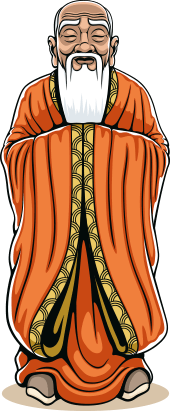 |
Confucianism is one of the major schools of thought that arose from the historical movement known as 'Contention of A Hundred Schools of Thought' in the 'Spring and Autumn' (770BC-476BC) and 'Warring States' (475BC-221BC) periods. Confucianism was founded by the great thinker and educator Confucius (also known as Kongzi, 551-479BC), and later inherited and developed by thinker and literati Mencius (also known as Mengzi and honoured as the 'second saint', 372BC-289BC). In the Han Dynasty, with the ardent promotion by the great Confucian Scholar Dong Zhongshu, Confucianism gradually gained in reverence as the guiding school of thought in the traditional society. 'Propriety, fraternity, integrity, humility, benevolence, love, loyalty and filial piety' are the basic tenets of Confucian thinking, as well as the guiding principles for the day-to-day lives of common Chinese. The polite, personable, gentle, rustic and diligent character of the Chinese has been fostered by Confucian education. |
The Confucian canon comprises at its core thirteen Confucian classics. By traditional methods of classification, The Book of Change, The Book of Odes, The Book of History, The Rites of Zhou and The Spring and Autumn Annals are the 'classics' (Jing, 經); The Chronicle of Zuo, The Chronicle of Gongyang and The Chronicle of Guliang are the 'chronicles' (chuan, 傳) of the category of the Spring and Autumn classics; The Book of Rites, The Classic of Filial Piety, The Analects and The Mencius are known as the 'records' (ji, 記); and Luxuriant and Refined Words is an explicatory work by Han classics masters. These categories, by order of significance, are the 'classics', the 'chronicles' and the 'records', and lastly Luxuriant and Refined Words.
The core ideals in the Confucian classics are 'benevolence' and 'propriety', with a particular stress on ethical relations between persons. These ideas are also applicable to politics as guiding principles.
(1) "Benevolence"
Fan Chi (from the State of Lu at the end of the Spring and Autumn Period), Confucius's disciple, asked him about the nature of 'benevolence'. Confucius answered, "loving others". 'Loving others' in Confucianism refers to the duties a social individual has to perform, the nature of which is to 'love others', i.e. 'benevolence'.
Benevolence is required of a person if he was to complete his social duties and obligations. In concrete terms, he has to be devoted to his family, keep faith with his friends, shun away from disloyalty as an official, and perform his social duties as expected of him. Starting from his immediate acquaintances, he has to keep harmony with everyone around him, and grow to "love and care for all children and elderly, as he would his own". He would dissolve his sentimental self in the worldly relations between people, to realize his ethical pursuits, in the end achieving the great political aim of state governance and universal peace.
In the practice of 'benevolence', Confucius emphasized that one should be empathic, that 'he who wishes to be established should also to establish others'. To be loyal, one exerts oneself for others. Contrarily, to be forgiving, it is necessary to see others as ourselves. Loyalty and forgiveness are paths to benevolence or keys to the 'art of benevolence'. It entails the union of others with the self, and treating both in the same right way.
(2) "Propriety" (Li)
You Zi said, "In practicing propriety, it is harmony that is prized." This Confucian ideal states that the functions and values of propriety help to create interpersonal harmony and consequently achieve harmony in whole society. Confucianism believes that practicing and maintaining benevolence and propriety is the foundation of harmony. When people (especially people of high social rank ) uphold the rights and duties of benevolence and propriety, a behavioral paradigm is created for the public (especially people of low social rank). And the public will not strayed from benevolence and propriety. This helps to maintain the harmony in society, especially when people live in the state of chaos just like in the period of "Spring and Autumn".
The Confucian ideals have a lot in common with Christian doctrines. Most significantly, both allow active intervention in society, and also provide an answer on the problem concerning the meaning of living.

The reach of Confucianism extends beyond China and is influential in the surrounding countries and regions such as South Korea and Japan. Confucian ideals such as benevolence, righteousness and propriety have spread and have an impact on ethics and etiquette of these places.
In recent years, to perpetuate the Confucian legacy, Confucius Institutes have been founded with support from the PRC Government. These institutes promote the spirit of 'upholding peace', and 'harmony, but not uniformity', to advance the interaction and amalgamation of Chinese culture with cultures around the world. Their vision is to bring about a harmonious world of lasting peace and prosperity. The rst Confucius Institute was opened in Korea in November 2004. By the end of 2015, over 500 Confucius Institutes had been established in 134 countries and regions in the world. These Institutes become an important platform for spreading Chinese culture and Confucian thinking.
Hong Kong Confucian Academy was founded in 1930 by Dr. Chen Huanzhang (disciple of Kang Youwei) and he was rst appointed as principal. Upholding the principles of promoting Confucianism and educating the young, the Academy promoted Confucianism as a religion and established the Confucian Secondary School (later renamed Tai Shing Secondary School) and some other secondary and primary schools to preserve and perpetuate Confucian ideals in Hong Kong. Confucianism lined up with the other ve major religions (namely Protestantism, Catholicism, Buddhism, Taoism and Islam) in Hong Kong and jointly make up the "Joint Conference of the Six Local Religious Leaders". These six religious groups work together to raise the ethical standard in society, advocate 'benevolence' and 'propriety', and promote world harmony.
 HOME
HOME
